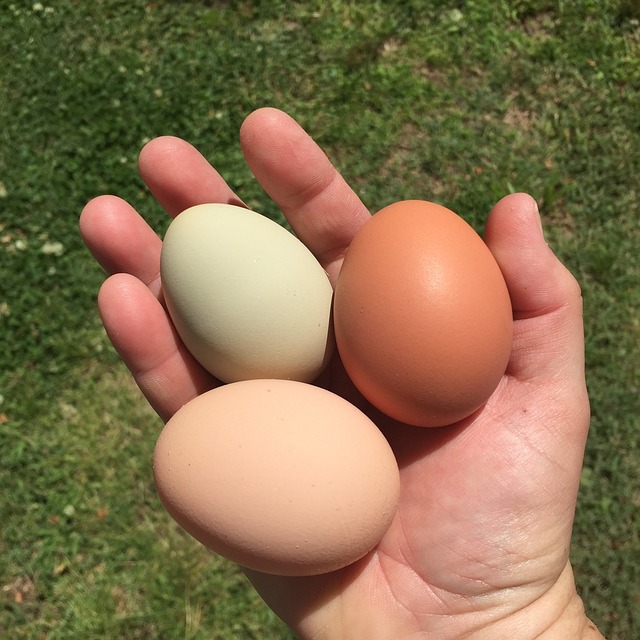Backyard chicken eggs are eggs that are laid by chickens raised in a backyard setting. These eggs are often considered to be of higher quality than store-bought eggs due to the chickens’ access to fresh food and outdoor living conditions. Raising backyard chickens provides a fresh source of eggs and can also help reduce food waste as chickens can be fed kitchen scraps. Additionally, backyard chickens can be a fun and educational hobby for families.
Proper egg handling is important for food safety and to ensure that the eggs remain fresh for as long as possible. Understanding whether backyard chicken eggs need to be refrigerated and how to store them properly is crucial for anyone raising chickens for their eggs.
What are Backyard Chicken Eggs?
Backyard chicken eggs and store-bought eggs can have differences in taste, color, and nutritional value. This is due to factors such as the chickens’ diet and living conditions. Backyard chicken eggs are often considered to be nutritionally superior to store-bought eggs due to the chickens’ access to fresh food and outdoor living conditions. These eggs can contain higher levels of vitamins, minerals, and omega-3 fatty acids.
Backyard chicken eggs can vary in size, shape, and color. The color of the eggshell can range from white to brown, and the egg yolk can vary in color from pale yellow to deep orange. The size and shape of the egg can also vary, but this does not affect the quality or taste of the egg.
Do Backyard Chicken Eggs Need to be Refrigerated?
Backyard chicken eggs do not necessarily need to be refrigerated, as they have a protective cuticle layer that can help prevent bacteria from entering and spoiling the egg. However, it is generally recommended to refrigerate eggs, especially if they are not consumed within a few days or if they have been washed and the cuticle has been removed. Refrigeration slows down the growth of bacteria and helps to prevent spoilage.
Store-bought eggs are typically washed before they are sold, which removes the cuticle, a protective layer that helps prevent the entry of bacteria. Backyard chicken eggs, on the other hand, are often not washed and still have the cuticle intact. The cuticle helps prevent the entry of bacteria into the egg and can also help to retain moisture, which can affect the freshness of the egg.
In summary, refrigeration slows down the growth of bacteria and helps to prevent spoilage. However, it is not necessary for backyard chicken eggs to be refrigerated if they are handled properly and consumed within a reasonable timeframe.
Factors that Determine if Backyard Chicken Eggs Need to be Refrigerated
The age of the egg can affect its freshness and whether or not it needs to be refrigerated. Fresh eggs can often be stored at room temperature for several days, while older eggs should be refrigerated.
Climate conditions, such as temperature and humidity, can also affect the freshness of eggs and whether or not they need to be refrigerated.
Proper hygiene practices in the chicken coop are essential for preventing the spread of bacteria and ensuring the freshness of eggs. This includes keeping the coop clean, providing clean bedding, and ensuring that the chickens have access to fresh water.
How to Store Backyard Chicken Eggs
Whether or not to refrigerate backyard chicken eggs is a matter of personal preference. Some people prefer to store eggs at room temperature, while others prefer to refrigerate them.
If storing eggs at room temperature, they should be kept in a cool, dry place away from direct sunlight. If refrigerating eggs, they should be stored in the main compartment of the refrigerator, not in the door, where the temperature can fluctuate.
How Long Do Backyard Chicken Eggs Last? Fresh eggs can last for several weeks when stored properly, whether at room temperature or in the refrigerator. To determine the freshness of an egg, it can be placed in a bowl of water. Fresh eggs will sink and lay flat on their side, while older eggs will stand upright or float, indicating that they should be used or discarded.
Conclusion
Backyard chicken eggs are a fresh and nutritious source of eggs that can be enjoyed by families. Whether or not these eggs need to be refrigerated depends on several factors, including the age of the egg, climate conditions, and hygiene practices of the chicken coop.
Proper egg handling and storage are important for food safety and to ensure that the eggs remain fresh for as long as possible. Ultimately, the decision to refrigerate or store eggs at room temperature is a matter of personal preference.










